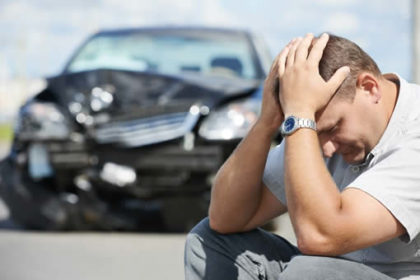
Accidents in the workplace are still a relatively common occurrence despite improvements amongst employers in adhering to the Irish and European Health & Safety regulations. How many accidents at work are caused by employers?
 It is exceptionally difficult to quote accurate statistics relating to work injury claims in Ireland, as data produced by the Health and Safety Authority (HAS) relies on incidents which are reported to them and there is no means of discerning which accidents and injuries are caused by employer negligence and which are just unavoidable accidents.
It is exceptionally difficult to quote accurate statistics relating to work injury claims in Ireland, as data produced by the Health and Safety Authority (HAS) relies on incidents which are reported to them and there is no means of discerning which accidents and injuries are caused by employer negligence and which are just unavoidable accidents.
Figures released by the Injuries Board would indicate that more than one thousand work injury claims are made in Ireland each year, but again, an accurate assessment of employer negligence in the workplace is hard to ascertain.
[soundcloud id=216126641]
Can you give us examples of the types of accidents at work you come across?
Although commonly associated with construction industry injuries, accidents can occur at all types of workplaces and may include slips, trips and falls caused through negligence on behalf of the employer. Over the past number of years we have dealt with numerous accidents at work ranging from a Client loosing a finger at a woodworking premises, a Client suffering a head injury at a meat factory, a client suffering a leg injury after being hit by a forklift at an agricultural premises, a client loosing a finger at a garage. During the Celtic Tiger years we acted for quite a number of Clients who fell from heights on various construction sites.
Other examples would include:
- Injuries involving lifting or manual handling
- Exposure to harmful and dangerous substances
- Tinnitus, deafness and other hearing problems caused by noise at work
These are just some of the numerous cases that we have dealt with over the past few years.
 What should you do if you are injured at work?
What should you do if you are injured at work?
- Seek medical assistance
It stands to reason that the most important thing is your physical well-being and this takes immediate priority over any considerations for financial compensation down the line. That said, by immediately getting medical attention from your GP or hospital Accident & Emergency, this may provide evidence which will help prove your injury claim down the line.
- Report the incident
If your accident is very serious or you have been significantly traumatised, it may not always be possible to follow procedures but it is recommended that you inform your immediate superior of the nature of incident as soon as possible. Your employer is legally required to keep an accident book with a record of all work-related accidents both in case of a compensation claim and to help avoid future workplace accidents.
- Take Photographs
At the very earliest opportunity following an accident, you should take photographs of the
scene if at all possible. Again these may be vital evidence for any future claim which may be taken.
- Get Details Of All Witnesses
If there were any witnesses to the accident, be sure to obtain their names, addresses and telephone numbers.
- Do A Detailed Statement Of How The Accident Happened
It is most important that you write down in the fullest detail how the accident happened and what injuries you suffered. You should set out the time, date and mechanics of the accident and who you believe is responsible and why you feel they are at fault. It is important that you complete this statement at the earliest date to avoid the possibility of forgetting details over time and include as much detail as you can remember, no matter how trivial. You have no way of knowing at an early stage what will prove to be important as your case progresses.
If you sue your employer does it follow that you then loose your job?
People are often apprehensive about making work injury claims due to the fear of losing their jobs or because they might upset an existing working relationship with their employer. Although the law protects people who are injured at work from being penalised or threatened with dismissal for making work injury claims, it does not always alleviate the fear of an awkward workplace confrontation on their return, or the potential for being jobless when employment is hard to find.
It is worth remembering that any work injury claims settlement is paid by your employer’s public liability insurance company, so you should not be concerned about your fellow employees suffering financially due to making a work injury claim.
What responsibilities do employers have so that they can avoid being sued?
Employers have a duty to:
- Provide a safe place of work
- Provide competent co-workers so that employees are not at risk
- Provide a safe system of work which is planned and organised
- Maintain the procedures which are in place.
- Provide instructions, training, equipment and support to employees- many cases arise because employess do not receive adequate training for their jobs .
How much compensation could someone who has been injured at work expect?
If the employer is found negligent or liable for the injury – compensation can range from large amounts for catastrophic injuries to more modest amounts for more minor ones such as recoverable back injury or simple bone fractures.
In many of these cases there may also be a loss of earnings element covering past and future loss of earnings.

